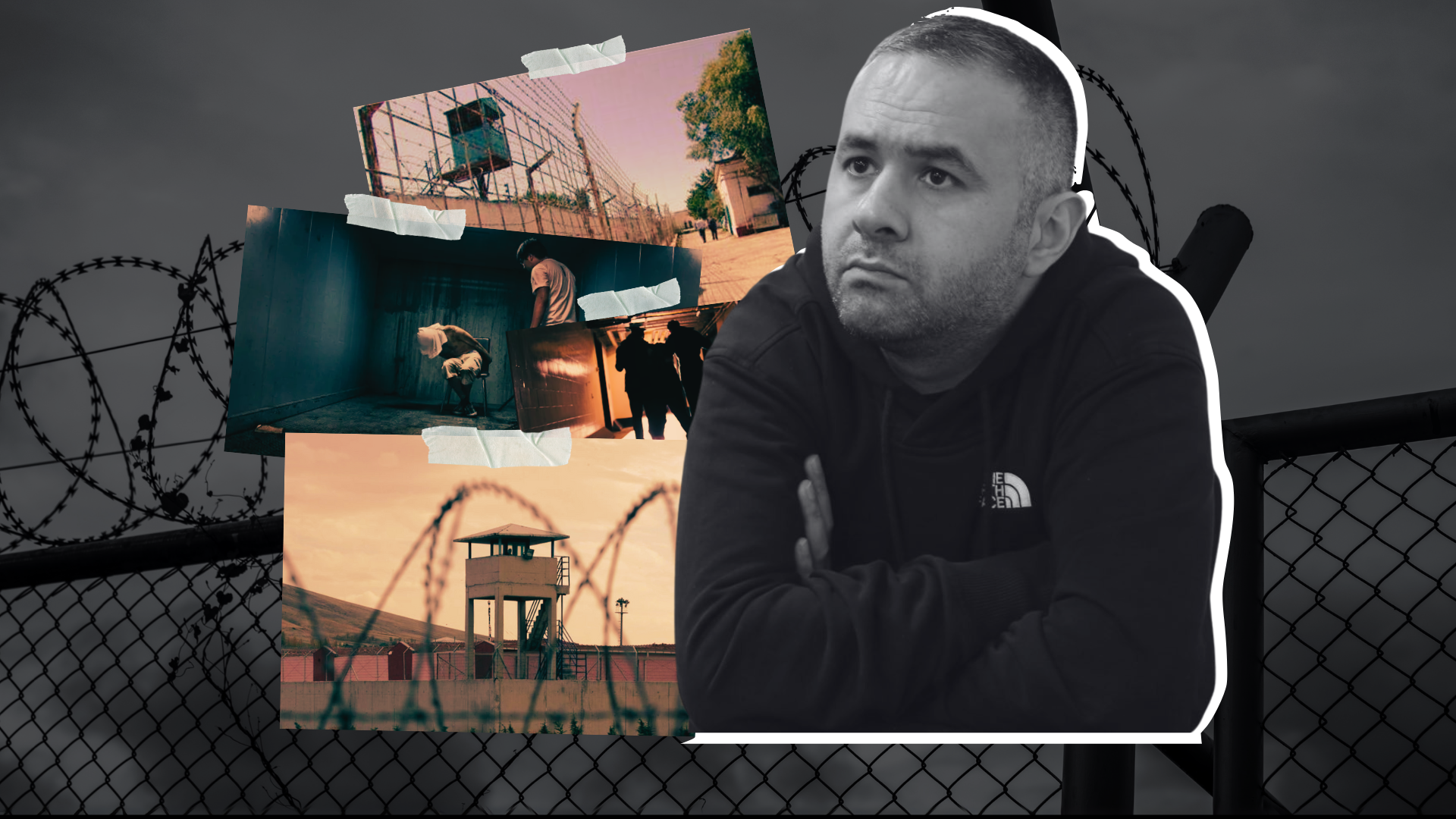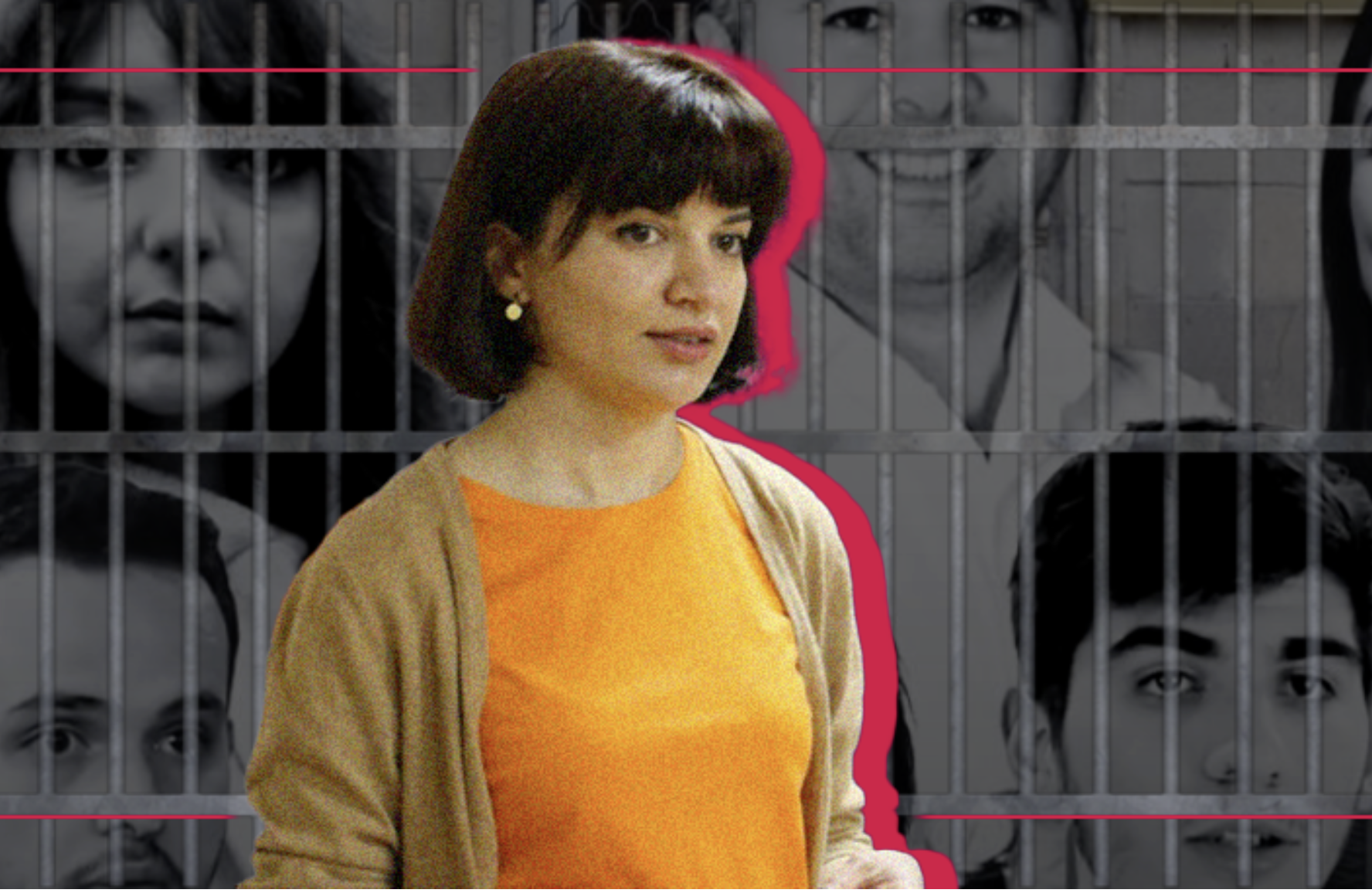I want to share my next set of observations about systemic torture and corruption in Azerbaijani prisons. This time, the focus is on Pretrial Detention Center No. 3, located in the settlement of Shuvelan near Baku, commonly known as “Shuvelan prison.”
Although I was never held in this facility myself, I have interviewed more than 30 inmates detained there, collected testimonies, cross-checked information, and compiled this article on that basis. The material covers the period from December 2023 to May 2025 — roughly a year and a half of observations. During my own imprisonment, I gathered information about nearly every prison in the country.
What became clear is that torture and corruption exist everywhere: in some prisons less, in others more. Based on the accounts I gathered, Shuvelan stands out as one of the three prisons in Azerbaijan where both torture and large-scale corruption are at their worst.
The prison itself is divided into two sections, informally referred to by inmates as the “lower” and the “upper” parts. The lower part consists of three single-story blocks. It mostly houses poor or abandoned inmates, as well as those who refuse to pay bribes. The upper part is a three-story block where conditions are relatively better — one bed per person — reserved for those who can afford to pay, or for political prisoners and influential figures the authorities want to keep under closer surveillance.
In practice, this division creates a crude hierarchy: the lower part for the “disposable” and the upper part for the “privileged.” Some prisoners describe it in caste-like terms — the lower and higher humans. Others bitterly call the three-story block “Titanic,” because of its comparatively better conditions. But what truly defines Shuvelan is not this hierarchy, but the brutality that pervades the entire facility.
In this article, I will focus on three central issues in Shuvelan prison: systemic torture, entrenched corruption, and the harsh living conditions.
Torture is primarily carried out by deputy chiefs. Just as in the Baku Pretrial Detention Center — where Deputy Chief for Regime Control Javid Gulaliyev and Deputy Chief for Operations Jeyhun Hadjiyev are known for beating inmates — Shuvelan has its own infamous figures. The torture there is led by Lieutenant Colonel Rasim, Deputy Chief for Regime Control, and Major İlkin Shiirinov, Deputy Chief for Operations, born in 1991.
Among prison officials, there seems to be a perverse competition over who can be more brutal or devise a new method of torture. Each deputy has a “signature” technique. Major İlkin Şirinov is particularly notorious: his trademark is rupturing prisoners’ eardrums, leaving them permanently deaf. Nearly two meters tall and powerfully built, he typically delivers massive slaps to the side of the head. Prisoners recount that if the victim fails to keep his mouth open during the blow, the eardrum bursts instantly. İlkin himself reportedly boasts: “I’ve ruptured the eardrums of more than 100 inmates. Don’t make me do the same to you.”
Word of this spreads quickly inside the prison. Terrified, inmates deliberately open their mouths when he approaches to slap them — a desperate attempt to protect their hearing.
Another of Major İlkin Shirinov’s methods is to lock prisoners inside a one-meter-high cabinet in his office, forcing them to crouch in painful positions for hours at a time.
Lieutenant Colonel Rasim has his own trademark torture. He often hangs inmates from the iron bars at the entrance to the blocks, leaving them suspended for hours.
“There isn’t a single day when at least one person isn’t beaten. At least one prisoner is always handcuffed and hung from the iron bars where the lower blocks meet,” one inmate testified.
Based on these accounts, during the 18 months I gathered information, there were at least 550 individual cases of torture in Shuvelan prison.
Rasim also uses mass punishment. If an inmate greets someone in the corridor, asks a question, or talks through the vent to another cell at night, every prisoner from that cell is dragged out and beaten with plastic pipes two to three centimeters in diameter.
Another notorious figure is Major Orkhan, the regime chief of the 1st block, about 40 years old. Like the deputies, he is known for personally beating inmates and then hanging them from the iron bars. Each block contains 18 cells, which by regulation should house 70–80 prisoners in total. In reality, the 1st block alone crams in around 250. Any inmate who dares to protest these unbearable conditions is severely beaten by Orkhan or the deputies, then handcuffed and hung from the bars. Prisoners say that those who want to end the ordeal more quickly can pay Orkhan between 50 and 100 manats — sometimes more.
According to multiple accounts, almost every step taken by the administration is designed to extract money. One example is the “cell game”: new inmates are threatened that unless they pay 400–500 manats, they will be placed in an overcrowded 35-person cell. For instance, cell 5 of Block 1 holds 34–35 prisoners in just 35 square meters of space.
For security reasons, I cannot disclose prisoners’ names.
“If they know who I am, they will beat me to death. For them, a prisoner’s life is like the life of a fly. They can kill with impunity, and no one will ever be held accountable,” one inmate said.
That is why I present prisoners’ statements anonymously.
“I was kept in a 35-person cell for 10 months. I protested several times, saying I can’t live here, please move me. Each time, İlkin and Rasim beat me. After that, I was too afraid to complain again. In that cell, we forgot what sleep was. Each of us was given a plastic bucket. The happiest moment was when you found a spot near the wall, put the bucket down, sat on it, and leaned back just to doze off. If you wanted to sleep on a bed, you had to pay 500–1000 manats to be transferred to another cell,” recalled one defendant.
Now let us turn to the second major problem I mentioned earlier: corruption. In Shuvelan prison, almost every step costs money. Deputy Chief Rasim is the first to “offer” new inmates a place in paid cells. Some of the lower-block cells have been renovated and are rented out for 400–500, sometimes even 700 manats. For example, cell 14 in Block 1 has tiled floors and a partitioned toilet; it is rented for 700 manats per prisoner.
A prisoner’s financial background also determines his “placement.” Those arrested for embezzlement or financial crimes are usually offered a place in the “Titanic.” Prices there vary: a bed on the first floor costs 700–800 manats, while the third floor — with a view of the sea — goes for 1500–2000 manats.
Even basic amenities are turned into sources of extortion. Access to paid TV channels is deliberately overpriced. Equipment worth 40–50 manats is sold to prisoners for 150. The monthly subscription, which costs 10 manats outside, is charged at 150 inside. On top of that, inmates are forced to buy old, second-hand televisions from the regime department for 300 manats if they want to use the service.
The summer months bring an added layer of suffering. The cells, once horse stables, lack proper ventilation or fans. During the hottest hours of the day, the vents are deliberately shut and only reopened at night. Prisoners suffocate in the stifling heat; some even faint from lack of air. When they plead for the vents to be opened, regime chiefs reply that permission must come from the prison chief, Jalil Aliyev. The cost of this “permission” is 500 manats per month.
The third critical issue in Shuvelan is the living conditions themselves. The very first place an inmate encounters is the shmon (search) section. Officially, its purpose is to check for illegal items — but in practice, it is another mechanism for extortion. If a new prisoner has cash, most of it is taken on the spot. Afterward, he is sent to “quarantine,” where the conditions are inhumane.
“I was placed in a 7–8 square meter cell meant for two people, but there were nine of us crammed inside,” one prisoner said.
“The purpose of keeping us like this is money. Prisoners pay whatever they can afford to get out. I spent the night standing,” said one inmate.
Another prisoner described the appalling conditions in the lower blocks. The beds date back to the 1970s and 1980s:
“Sometimes TV channels show the cells in Shusha prison. Imagine that Shuvelan’s cells are even worse. We look at those with longing. The mattresses here haven’t been cleaned or replaced for decades — they are covered in blood, dirt, stains, excretions, infections. In my cell there were 14 beds pushed together. Twenty-four people were kept inside. Everyone slept wherever they could, without hygiene. We had to sleep in shifts: 14 lay down while the rest stayed awake, then we switched. One day you sleep at night, the next day during the day. It destroys your body, your mind. Health and psychology collapse under such conditions.”
Another inmate added that the cells are infested with vermin:
“Cockroaches, bugs, mice, rats — even snakes. Toilets are open inside the cells. It means total unsanitary conditions. It means E. coli spreads everywhere.”
Prisoners are kept in suffocating, airless rooms. Each cell has only a tiny window, barely admitting light, let alone ventilation. Even outdoor exercise — a basic right — is severely restricted.
According to Article 15 of the Law on Ensuring the Rights and Freedoms of Persons Held in Detention, detainees must be allowed at least two hours of outdoor exercise per day. In Shuvelan, inmates are given at most half an hour, sometimes only five minutes. Those who want more must bribe the regime chief.
The food provided is equally degrading. Prisoners say it is inedible. They often salvage chickpeas or scraps of chicken from the watery soup, throw away the liquid, and try to cook it again themselves. Even the poorest inmates refuse to eat it as served.
One inmate summed up the experience bluntly:
“In Shuvelan prison, we don’t live like humans. I don’t think there is another prison like this anywhere in the world today. Even animals wouldn’t be treated this way. This place used to be a horse stable. But now even animals wouldn’t live here.”
The prison yard itself reflects this irony. The chief maintains his personal farm there, keeping various animals — birds, chickens, sheep, even pigs. Prisoners are forced to work on this farm, serving the chief’s private interests.
Inmates also report that whenever inspectors or representatives of the Ombudsman’s office visit, they are only shown the “upper part” of the facility — the so-called Titanic.
“No one cares about our situation. That’s why the chief, deputies, and regime officers do whatever they want — torturing prisoners as they please. The conditions are unbearable, lawless, and arbitrary,” said one prisoner.
As these testimonies show, Shuvelan prison is defined by discrimination, lawlessness, and a regime more reminiscent of fascist or Gestapo practices than a legal penal institution. Several members of its staff belong on the growing list of Azerbaijan’s most notorious “torture kings”:
Javid Gulaliyev – Deputy Chief, Baku Pretrial Detention Center
Jeyhun Hadjıyev – Deputy Chief, Baku Pretrial Detention Center
İlkin Shirinov – Deputy Chief, Pretrial Detention Center No. 3 (Shuvelan)
Lieutenant Colonel Rasim – Deputy Chief, Pretrial Detention Center No. 3 (Shuvelan)
Major Orkhan – Regime Chief, Block 1, Pretrial Detention Center No. 3 (Shuvelan)
Parviz Quliyev – Sergeant, Baku Pretrial Detention Center
Kanan Orudjev – Deputy Chief, Penal Colony No. 7
Although Abzas Media sent inquiries to the Office of the Commissioner for Human Rights (Ombudsman) of the Republic of Azerbaijan and to the Penitentiary Service of the Ministry of Justice regarding the allegations about Pretrial Detention Center No. 3 in the settlement of Shuvelan, no response had been received by the time the article was published.
Ulvi Hasanli
Director, Abzas Media





